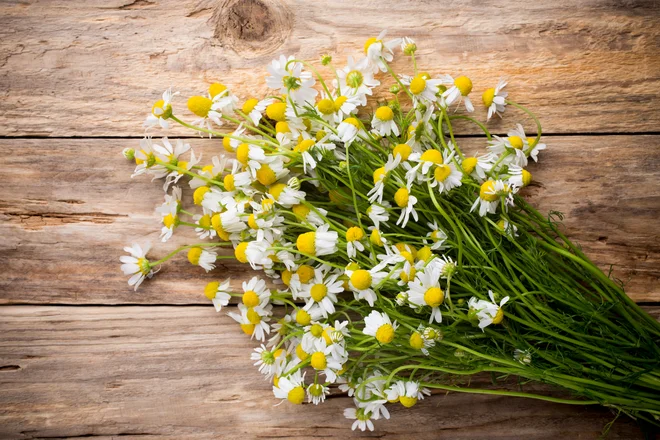Medication is a medicine and a dietary supplement supplement

As many as forty percent of synthetic drugs are based on the active ingredients found in plants. Their healing effects were perceived, tested and studied by our ancestors, but already afforded some exaggeration: they spiced up with myths, superstitions and storytelling. Today is happening – some plants are almost a cure for everyone. Alternatively, or above all, in the last episode are podcast In the outpatient clinic with dr. Eagle spoke Deadlock eagle and his guest Borut Štrukelj.
Borut Štrukelj
Prof. dr. Borut Štrukelj is a full professor at the Faculty of Pharmacy, University of Ljubljana and its former dean. He is a researcher in biochemistry and biotechnology and co -author of many patents. As an expert, he also cooperates with the United Nations for Industrial Development (Unido), regarding the transfer of technology to developing countries. In doing so, they say, they strive for local production of medicines, vaccines and medical devices. An additional impetus for this is the Covida-19 pandemic, which has shown how vulnerable we are and that only part of the world has access to these goods. In the development of this area, they mainly cooperate with Africa, Cuba and Indonesia. Štrukelj therefore travels a lot, but his visits are primarily working in nature and does not have time for tourist tours. For example, when his son asked him after his return from Kenya what it was like, he replied: « You know, hotels and lectures are about the same worldwide. »
You have always fascinated me how many areas you are dealing with. These include medicinal plants. These are probably really the beginning of pharmacy. How about this now, what is the difference between their use once and today?
Medicinal plants have impressed me ever since. I started to get to know them as a kid. At home, my father allowed me to have my own lab, and this one grew from year to year. So, when the time came, I fluctuated while enrolling in pharmacy or medicine. I started both, and finally I only decided on pharmacy, specifically for medicinal plants, and later I focused on biological medicines.
As you said, medicinal plants are the beginning of treatment. The basis is experiential health. Our ancestors learned based on experiments and mistakes. Already Paracelsus he said: SOL DOSIS FACIT VENENUM, Which means that it depends on the dose whether a medicine will be a cure or will be poison. That is why doctors like you, and pharmacists like me, have an exceptional tool in our hands, which must be properly assessed. Interestingly, forty percent of synthetic drugs are based on the active ingredients found in plants.
However, we find out over and over that what nature has done is good, but may not be optimal. What is missing is added with synthesis or semi -synthesis. Even more interesting is our unexpectedness. Because we would like to stop our problems immediately, we resort to synthesis medicines that work directly and have an effect immediately. However, if they were more patient, we could use medicinal plants that would work the same or better over time and cause less side effects.
Today, medicinal plants are popular among humans. It could be said that phytotherapy is experiencing a renaissance. This may be due to disappointment with official medicine and pharmacy. What about medicinal plants is new in scientific sense?
Official medicine and pharmacy are based on scientific data. Let me give a very telling example. The St. John’s wort extract, when taken orally, is slowly but reliably acting against depression. This was written hundreds of years ago. However, it said: St. John’s wort should be accumulated at the first dew after a full moon, with a dead cat, committed around the waist. Today, some advertisers are exaggerating in a similar way. We call it an indication lyric – and our job is to confirm or refute the work on the basis of evidence.
It is a medicine, a dietary supplement is a dietary supplement or food. Medicinal plants that have a medicinal effect, or the insulation of the active substances from them are medicines.
In principle, people have classic medicines made by the pharmaceutical industry for potentially dangerous, and medicinal plants for something endlessly safe.
Medicinal plants, of course, have the healing effects that we want to explore, but also have side effects. Let’s take a Carniolan bun for example. It contains active ingredients that work great against spasms. Why don’t we grow her at home? Because we don’t know how many of them are in the leaves. They could poison themselves. Similarly, for example, it applies to fungi – they make antibiotics from these. In short, prescribing medicinal plants with strong effects is left to doctors and pharmacists.
If we write down that chamomile tea blend has a calming effect on well -being, it is a nutritional supplement. Photo: Shutterstock
How are medicinal plants regulated? The pharmaceutical industry is very controlled, but here we are in the field of food, nutritional supplements …
It is a medicine, a dietary supplement is a dietary supplement or food. Medicinal plants that have a medicinal effect, or the insulation of the active substances from them are medicines. This is governed by the European or National Medicines Agency. For example, if chamomile flowers reduce gastric cramps, this must be proven and registered as medicines, which is very long and expensive. If we inform that a tea blend has a calming effect on well -being, it is a nutritional supplement.
However, we should not attribute healing effects to plants and offer them on the market as nutritional supplements, as some individuals and businesses do.
Already Paracelsus said: SOla Dosis Facit Venenum, Which means that it depends on the dose whether a medicine will be a cure or will be poison.
What are those areas or, say, medical indications where medicinal plants are most useful?
We can start with the skin. For example, lemon essential oil has a very powerful antiseptic effect against MRSA bacteria (Staphylococcus aureus).
Probiotics can orally relieve various atopic dermatitis.
Antidepressants used on synthesis chemistry can be very effective, but the condition can also worsen if we do not take them properly. We can say that this is a kind of addiction.
The lack of secretion of digestive juices can be very nicely regulated with plant bitterness. Interestingly, a medicine based on plant ingredients is obtained from a pharmacy consisting of nine herbs. This medicine regulates both increased digestive juice secretion and, if taken for a long time, too small secretion. In the elderly, in which too little gastric acid, pepsin, trypsin and other enzymes are secreted, they help to regulate, ie balance.
Then, for example, we have adaptogens; These are substances from medicinal plants that allow us to remain optimal.
Where should everyone get a useful, useful knowledge of medicinal plants? There are a lot of books about them, but I have to admit that I am somewhat skeptical of them, because, according to them, every cabbage is good for almost everything.
If the book is written by a layman. However, if it is written by an expert … The Slovenian Pharmaceutical Society has already published two extensive monographs on this topic,, Modern treatment with medicinal plants, containing scientific evidence supported facts. A good source can also be social networks if the information comes from someone who gets to know the matter. Good information is now worth it.







